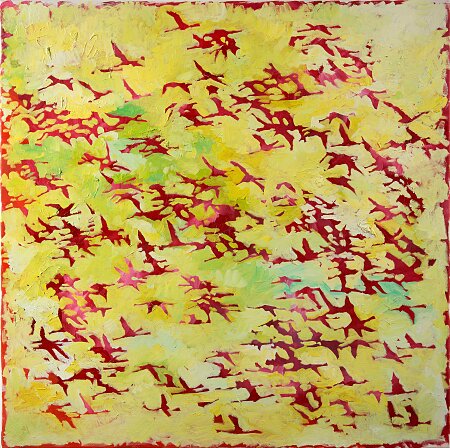
They Went Around My End
At least eighty percent of Beverly High’s student body was Jewish, offspring of many fathers and uncles who had fought in Europe. I’d lived through grades six to twelve without hearing any anti-Semitic remarks. Not so the varsity football team. At our fiftieth reunion, Steve, the quarterback, told me what had happened on the field that night. He said Culver City was not the first school to hector them with hate speech.
Located five miles down the San Diego freeway and a galaxy away from Beverly Hills, Culver City was, back then, a collection of white working-class neighborhoods full of tough Christian kids who were taught to despise Jews.
*
Words like “dirty Jews” and “kikes” hurt. They made you want to retaliate, particularly when you had a background like Steve’s. His grandparents had immigrated from Romania, Poland, and Austria. Their relatives stayed behind, the Romanians to be gassed and then burned to ash in the ovens of Auschwitz, the Poles to be crammed into the Warsaw Ghetto and then carted away to the camps. Steve’s Austrian relatives were never heard from again. Until his family moved to Beverly Hills, Steve had spent his childhood in Texas, in his words “white, hardshell Baptist country.” More than one kid there had called him a Christ killer.
Steve’s father, who ran a nightclub, had taught his son a strategy that differed from my mother’s. “If someone calls you a dirty Jew,” he said, “kick their ass.” Maybe that’s why, despite six years in tolerant Beverly Hills, Steve’s yearbook picture featured an incomplete smile under a thicket of dark hair. Some compared his appearance to James Dean’s. Even if Culver City’s players knew Steve’s background, I doubt it would have mattered to them.
“Here I am,” Steve said at the reunion, “calling the signals and having to listen to this. I just wanted to play and win a football game, not fight a religious war.”
Nor, I’m sure, did the Culver bullies know about Leo, one of the guards. His father was a tailor for the Nazis in Auschwitz. SS officers loved their crisp, impeccable uniforms, which is probably the reason Leo’s father hadn’t died in a gas chamber. Leo’s mother was also in that camp. She survived by other means. But, based on the wide-open smile in Leo’s senior portrait, you’d never have guessed any of that. Even in his football uniform, crouched on the line as he was in a team photo, his gentle face gave him away.
At the reunion, Steve made sure I knew how our players had felt. Regardless of their faith, they became incensed at the anti-Semitic barbs, angry enough that, for almost the entire game, Beverly held Culver scoreless. They played like their entire world depended on it.
The fight started after Culver’s first touchdown. Either the referees or the coaches broke it up, but the instant the ball went back into play, so did twenty-two sets of fists. That much I saw.
A player kicked Steve in the groin. He limped to the sidelines. Moments later, someone from behind almost clipped my head as he leaped over the bleachers, down toward the field. It was Steve’s brother, Stewart, I later learned. The coaches had placed Steve on the ground to see if his injury was serious. Stewart must not have known what they were doing. “Get off my brother,” he yelled.
Into our sidelines ran another Culver player. Warren would term it “a late hit out of bounds.” Standing now but still smarting, Steve kicked at the trespasser’s blue helmet. Meanwhile, on the field, Steve’s teammates grabbed the opposing players and whaled on them, triggering another round of fists, more vicious than the first. The taunts continued, I’m told, along with the fistfights, which I saw each time the offense snapped the ball. The game spun out of control. So did the Culver City spectators, who flowed out of the bleachers, onto the field, and beelined toward the Beverly players. That’s when somebody—the refs, the coaches, I don’t know—halted everything. There was no whistle, at least that I heard. With a shade more than two minutes to go, the action just … stopped.
A few seconds had to pass for me to realize it was over, that our boys were moving toward their bus, which had roared onto the field. The coaches hustled them aboard, and the bus peeled out, back to Beverly Hills, leaving me confused and inert under the floodlights, the chaos dwindling into silence.
*
Near my car in the Culver High parking lot, Mr. Miletich, the boys’ vice principal, grabbed my arm. “Mohr, you’re not going to say anything about this fight. You hear me? You’re not going to criticize our team anymore. You’re going to write that they played a great game. You hear me?”
I froze. I may have been on the forensics squad, but words wouldn’t come. The floodlights turned Mr. Miletich’s tanned face into a menacing snarl, made worse by the black suit he wore. That would become my lasting image of our boys’ vice principal, the man who wouldn’t let go of my arm.
My drive home was a lonely ride. I didn’t turn on the radio. I thought about how we’d report the game in the Highlights. I visualized Mr. Miletich, followed by my “little brother,” Ted. Odd. For a second as I left the freeway exit ramp for Beverly Hills, Ted’s question about the victory flag floated through my mind.
